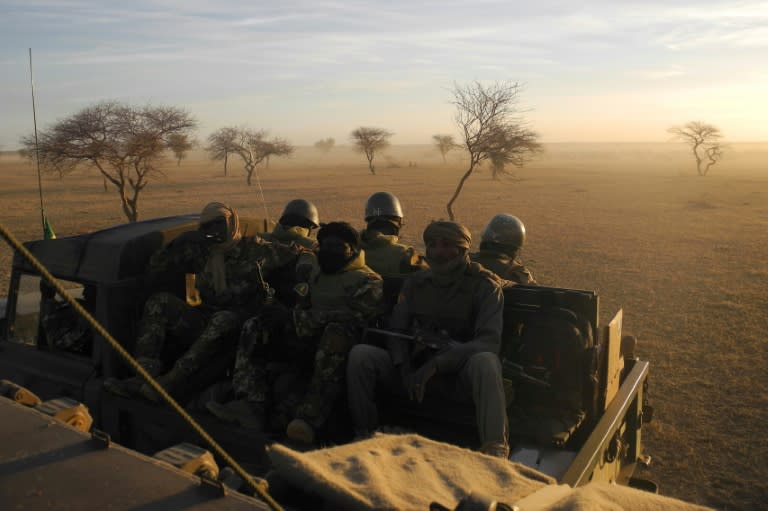Sahel force funding shows Saudi serious on terrorism fight

Saudi Arabia's hefty donation to a new anti-terror force in west Africa's Sahel region is a conspicuous attempt by Riyadh to show it is serious about fighting extremism, analysts say. The new G5 Sahel force pools troops from Burkina Faso, Mali, Mauritania and Niger in an area of desert the size of Europe where extremist groups have been thriving. Money had been a major obstacle to getting it off the ground, meaning Riyadh's pledge of 100 million euros ($118 million) is a relief for former colonial power France, which has spearheaded the project. But Saudi-watchers say getting involved also serves twin purposes for Riyadh: countering accusations that it finances extremism, and consolidating influence in a region where it has invested for years. "Fighting terrorism and extremism with zero tolerance is our priority," Saudi Foreign Minister Adel Al-Jubeir told Le Monde newspaper on Thursday. The United Arab Emirates, also keen to demonstrate its commitment to fighting extremism, has offered an additional 30 million euros to the fledgling force. The cash brings total funding over the initial 250 million euros needed to get the force up and running following last month's maiden mission in the volatile border zone between Burkina Faso, Mali and Niger. The Saudi contribution is "very important", according to a source close to the talks where the donations were announced Wednesday following a summit hosted by French President Emmanuel Macron. "The Saudis have always been suspected of financing terrorism. We've said to them, 'Take part in some kind of multilateral cooperation, and that suspicion will be lifted,'" the source said. Riyadh has long faced accusations that it exports a radical form of Sunni Islam, Wahhabism, by funding Koranic schools, mosques and charity groups around the world. But Saudi Crown Prince Mohammed bin Salman is seeking to rein in the influence of religious ultra-conservatives in the kingdom, which has been hit by multiple attacks blamed on extremists. - Growing French ties - Prince Mohammed -- widely known by his nickname "MBS" -- has presented himself as a champion of moderate Islam as he seeks to modernise Saudi Arabia. Last month he launched a military coalition of 40 Muslim countries, vowing to "pursue terrorists until they are wiped from the face of the earth". And Riyadh was already a member of the US-led anti-jihadist coalition fighting in Iraq and Syria. "Saudi Arabia has an interest both in combating violent jihadi movements and in being seen to do so," said Jane Kinninmont, a senior research fellow at British think-tank Chatham House. "This isn't entirely new under MBS," she added. "Saudi leaders have been aware of the risks of transnational violent Islamist movements for a long time -- especially since 9/11 and since Al Qaeda started to attack Saudi Arabia in 2003." Diplomatic interests are at play too in yielding to French pressure to join the project, Kinninmont said. "France's ties with the Gulf have been growing for years and as the UK prepares to leave the EU, France is likely to become the new best friend of the Gulf states within the EU," she said. Florent Geel, Africa director at the International Federation for Human Rights, said the Saudis, like Qatar, "have been investing a lot in the Sahel for 10 to 15 years -- in mosques, in social projects." He asserted this was a form of "Wahhabist expansionism to counter Sufism", the mystic form of Islam widespread in the Sahel, saying the Saudis had "financed a form of radicalisation". Nicolas Desgrais, a researcher at the University of Kent in England who specialises in military cooperation in the Sahel, said Riyadh had been cultivating influence in Burkina Faso for years. "In Burkina, the Saudis have been involved for many years via associations, free clinics, Koranic schools -- to the point of replacing public policy," he said. Burkinabe authorities have been trying to crack down on Saudi influence of late, he added -- but the kingdom's new involvement in the Sahel force may provide fresh opportunities to increase its clout. "This financial contribution from Riyadh to the G5 Sahel force could perhaps reopen doors that were closing," he said.

